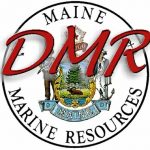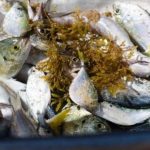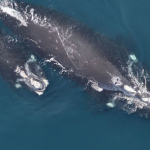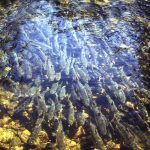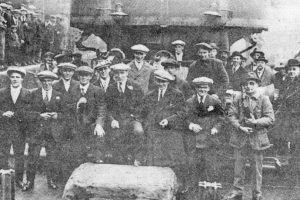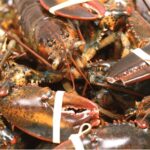Monthly Archives: March 2016
Atlantic cod, white hake recommended for endangered species list
 The low number of white hake and Atlantic cod has led to the recommendation they be given endangered status by the Committee on the Status of Endangered Wildlife in Canada. Nearly half a million grey seals in the Northumberland Strait that feed on the fish are the main cause behind the recommendation, according to the committee. It’s also a combination of two other factors, said Hugues Benoit, head of the marines fish section at Fisheries and Oceans Canada. “The available information we have now it does suggest that the combined effect of the low level of abundance of these fish species and high level of abundance of grey seals could be the cause of elevated natural mortality,” he said. Read the rest here 17:03
The low number of white hake and Atlantic cod has led to the recommendation they be given endangered status by the Committee on the Status of Endangered Wildlife in Canada. Nearly half a million grey seals in the Northumberland Strait that feed on the fish are the main cause behind the recommendation, according to the committee. It’s also a combination of two other factors, said Hugues Benoit, head of the marines fish section at Fisheries and Oceans Canada. “The available information we have now it does suggest that the combined effect of the low level of abundance of these fish species and high level of abundance of grey seals could be the cause of elevated natural mortality,” he said. Read the rest here 17:03
Proposed Maryland oyster study draws watermen’s ire
 A bill heard this week by a Senate committee would require scientists to determine a sustainable rate of harvest. But it has drawn the ire of watermen and the seafood industry, who contend such a study is unnecessary and a threat to their livelihood. Supporters of the legislation, including environmentalists and recreational anglers, warned Tuesday that despite a population surge the past few years, the state’s oysters may be at risk of overfishing. That could have dire consequences, they said. Oysters are not only the state’s second most valuable commercial fishery, they also help clean the Chesapeake’s water and provide vital habitat for other fish. The bill, introduced by Sen. Roger Manno, a Montgomery County Democrat. Read the rest here 14:08
A bill heard this week by a Senate committee would require scientists to determine a sustainable rate of harvest. But it has drawn the ire of watermen and the seafood industry, who contend such a study is unnecessary and a threat to their livelihood. Supporters of the legislation, including environmentalists and recreational anglers, warned Tuesday that despite a population surge the past few years, the state’s oysters may be at risk of overfishing. That could have dire consequences, they said. Oysters are not only the state’s second most valuable commercial fishery, they also help clean the Chesapeake’s water and provide vital habitat for other fish. The bill, introduced by Sen. Roger Manno, a Montgomery County Democrat. Read the rest here 14:08
Coast Guard rescues 3 fishermen forced to abandon ship off Big Island
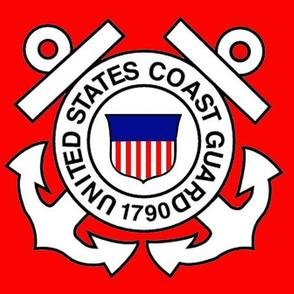 The three fishermen who were forced to abandon ship from a 41-foot fishing vessel off the coast of the Big Island were rescued Friday morning and are now safe on Oahu, according to the U.S. Coast Guard. The Coast Guard launched one of its helicopters after receiving the emergency report shortly before 8 p.m. on Thursday. While scouring the ocean, the aircrew located the fishermen in a life raft when they spotted flashing lights and flares used to call for help. The fishermen were on a fishing vessel called the Vicious Cycle when they were forced to abandon ship approximately 160 miles southwest of Kona. Read the rest here, and here 12:57
The three fishermen who were forced to abandon ship from a 41-foot fishing vessel off the coast of the Big Island were rescued Friday morning and are now safe on Oahu, according to the U.S. Coast Guard. The Coast Guard launched one of its helicopters after receiving the emergency report shortly before 8 p.m. on Thursday. While scouring the ocean, the aircrew located the fishermen in a life raft when they spotted flashing lights and flares used to call for help. The fishermen were on a fishing vessel called the Vicious Cycle when they were forced to abandon ship approximately 160 miles southwest of Kona. Read the rest here, and here 12:57
Quin Sea sale to Royal Greenland approved by N.L. government
 The Newfoundland and Labrador government has approved the sale of one of the province’s largest fish processors to a Greenland company. The Minister of Fisheries and Aquaculture, Steve Crocker, said in a news release Friday that he has accepted the recommendations of the Fish Processing Licensing Board to have Royal Greenland take over . Quin Sea operates a half-dozen plants in the province — the largest one in Old Perlican, Trinity Bay — processing about 11,000 metric tonnes of seafood every year. Read the rest here and here 11:16
The Newfoundland and Labrador government has approved the sale of one of the province’s largest fish processors to a Greenland company. The Minister of Fisheries and Aquaculture, Steve Crocker, said in a news release Friday that he has accepted the recommendations of the Fish Processing Licensing Board to have Royal Greenland take over . Quin Sea operates a half-dozen plants in the province — the largest one in Old Perlican, Trinity Bay — processing about 11,000 metric tonnes of seafood every year. Read the rest here and here 11:16
Effort underway to protect the Boston Fish Pier
![508335-508335[1]-5990](https://fisherynation.com/wp-content/uploads/2016/03/508335-5083351-5990-e1457711348438.jpg) A group of South Boston politicians are pushing state officials for new measures to protect the Boston Fish Pier, including putting the 102-year-old wharf on the National Register of Historic Places. The effort comes as the Seaport area undergoes massive changes, with high-end offices, restaurants, apartments and condos opening on a regular basis near the pier. Meanwhile, the pier continues to operate as the city’s primary fishing port, with a number of commercial fishing boats docked there and seafood processors operating in two of the pier’s three buildings. It’s also home to the No Name Restaurant, a popular seafood eatery. Read the rest here 10:40
A group of South Boston politicians are pushing state officials for new measures to protect the Boston Fish Pier, including putting the 102-year-old wharf on the National Register of Historic Places. The effort comes as the Seaport area undergoes massive changes, with high-end offices, restaurants, apartments and condos opening on a regular basis near the pier. Meanwhile, the pier continues to operate as the city’s primary fishing port, with a number of commercial fishing boats docked there and seafood processors operating in two of the pier’s three buildings. It’s also home to the No Name Restaurant, a popular seafood eatery. Read the rest here 10:40
Trudeau-Obama shared Arctic leadership model a hit with environmental groups
 Environmental organizations are celebrating the prioritization of the Arctic in the joint statement on climate change issued by Prime Minister Justin Trudeau and U.S. President Barack Obama. The statement released yesterday in conjunction with Trudeau’s visit to Washington included a commitment to implement the Paris Agreement and reduce methane emissions. A shared leadership model on action in the Arctic was one of the highlights in the document. “That is not just significant, it’s historic and unprecedented,” said Louie Porta, policy director of The Pew Charitable Trust’s Oceans North Canada. Read the rest here 09:55
Environmental organizations are celebrating the prioritization of the Arctic in the joint statement on climate change issued by Prime Minister Justin Trudeau and U.S. President Barack Obama. The statement released yesterday in conjunction with Trudeau’s visit to Washington included a commitment to implement the Paris Agreement and reduce methane emissions. A shared leadership model on action in the Arctic was one of the highlights in the document. “That is not just significant, it’s historic and unprecedented,” said Louie Porta, policy director of The Pew Charitable Trust’s Oceans North Canada. Read the rest here 09:55
International overfishing study argues every fishing vessel should be tracked
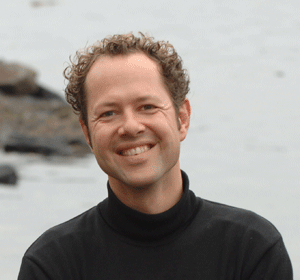 A team of international ocean scientists is urging policy makers around the world to start tracking every vessel on the planet — the same way ride-hailing service Uber tracks cars. A report released today in the journal Science says the anonymity granted to vessels at sea creates perfect conditions for overfishing and the destruction of entire ocean ecosystems. Boris Worm, a Dalhousie University ecologist and a senior author of the report, said the key may be a satellite tracking system known as AIS, or automatic identification system. Read the rest here 09:27
A team of international ocean scientists is urging policy makers around the world to start tracking every vessel on the planet — the same way ride-hailing service Uber tracks cars. A report released today in the journal Science says the anonymity granted to vessels at sea creates perfect conditions for overfishing and the destruction of entire ocean ecosystems. Boris Worm, a Dalhousie University ecologist and a senior author of the report, said the key may be a satellite tracking system known as AIS, or automatic identification system. Read the rest here 09:27
Now here’s something you don’t see everyday! The four-clawed lobster
 It sort of looks like a Swiss Army lobster, doesn’t it? We’ve seen a lot of different types of rare lobsters end up on a boat or a dock here in Maine. White lobsters, blue lobsters, yellow lobsters, huge lobsters… there’s a Dr. Seuss book in this somewhere, I think. In terms of colors, the Maine Lobstermen’s Community Alliance describes the white ones as the rarest, at only about one in every 100 million. But nobody really has a category for mutations like the four-clawed crustacean above, which has now been appropriately named “Clawdette.” Naturally, social media’s going nuts over her. Read the rest here 08:57
It sort of looks like a Swiss Army lobster, doesn’t it? We’ve seen a lot of different types of rare lobsters end up on a boat or a dock here in Maine. White lobsters, blue lobsters, yellow lobsters, huge lobsters… there’s a Dr. Seuss book in this somewhere, I think. In terms of colors, the Maine Lobstermen’s Community Alliance describes the white ones as the rarest, at only about one in every 100 million. But nobody really has a category for mutations like the four-clawed crustacean above, which has now been appropriately named “Clawdette.” Naturally, social media’s going nuts over her. Read the rest here 08:57
Department of Fisheries and Oceans’ last in, first out (LIFO) is working exactly as planned
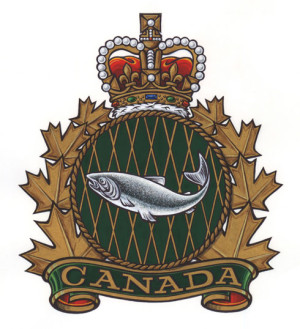 LIFO was never intended to have a long shelf life. Its purpose was and is to pave the way for what has been in the planning and negotiating stage for a long time now, and which is designed to replace it — the Comprehensive Economic Trade Agreement (CETA) with the European Union. Between now and when that trade agreement is ratified, LIFO will help force inshore fishers, processors, plant workers, coastal communities and out of the fishery — and the province of Newfoundland and Labrador is about to take a $280-million bribe to help grease the wheels. LIFO is merely a symptom, a precursor if you will, to CETA. Read the rest here 08:40
LIFO was never intended to have a long shelf life. Its purpose was and is to pave the way for what has been in the planning and negotiating stage for a long time now, and which is designed to replace it — the Comprehensive Economic Trade Agreement (CETA) with the European Union. Between now and when that trade agreement is ratified, LIFO will help force inshore fishers, processors, plant workers, coastal communities and out of the fishery — and the province of Newfoundland and Labrador is about to take a $280-million bribe to help grease the wheels. LIFO is merely a symptom, a precursor if you will, to CETA. Read the rest here 08:40
Coast Guard boat crews safeguard fishing vessel disabled by rogue wave near Oregon coast
 Boat crews from Coast Guard Depoe Bay towed the three person crew of a commercial fishing vessel in distress and have been safeguarding them near Yaquina Bay since 2 a.m. Thursday, unable to cross the Yaquina Bay bar as 20-foot seas continue to thrash the Oregon coast. Due to a Captain of the Port closure restricting movement across the Yaquina Bay bar, two lifeboat crews are on standby with the fishing vessel Ms. Nicani until local weather clears, which is expected to be late Thursday evening or Friday morning. The tow began around 2 a.m. about two miles off shore when the crew of Ms. Nicani reported a rogue wave broke the vessel’s windshield and destroyed their electronic systems. Waves in the area were reported to be between 25 and 30 feet the time of the call. Read the rest here 07:14
Boat crews from Coast Guard Depoe Bay towed the three person crew of a commercial fishing vessel in distress and have been safeguarding them near Yaquina Bay since 2 a.m. Thursday, unable to cross the Yaquina Bay bar as 20-foot seas continue to thrash the Oregon coast. Due to a Captain of the Port closure restricting movement across the Yaquina Bay bar, two lifeboat crews are on standby with the fishing vessel Ms. Nicani until local weather clears, which is expected to be late Thursday evening or Friday morning. The tow began around 2 a.m. about two miles off shore when the crew of Ms. Nicani reported a rogue wave broke the vessel’s windshield and destroyed their electronic systems. Waves in the area were reported to be between 25 and 30 feet the time of the call. Read the rest here 07:14
Nova Scotia lobster buyers must take a lobster handling course for licence renewal
 Nova Scotia lobster buyers will have to take a lobster handling course this spring to have their licences renewed, the provincial fisheries minister said Thursday. Proper handling of lobsters should mean fewer crustaceans lost, said Fisheries Minister Keith Colwell. He said buyers were not consulted before introducing the new mandatory licence requirement. “If we would have waited … every day we lose not having proper handling practices in place on lobsters means we’re losing revenue for the province of Nova Scotia and for rural communities in Nova Scotia,” Colwell said.”If that lobster doesn’t make it to market for whatever reason, then that’s revenue that we’ve lost.” Read the article here 20:45
Nova Scotia lobster buyers will have to take a lobster handling course this spring to have their licences renewed, the provincial fisheries minister said Thursday. Proper handling of lobsters should mean fewer crustaceans lost, said Fisheries Minister Keith Colwell. He said buyers were not consulted before introducing the new mandatory licence requirement. “If we would have waited … every day we lose not having proper handling practices in place on lobsters means we’re losing revenue for the province of Nova Scotia and for rural communities in Nova Scotia,” Colwell said.”If that lobster doesn’t make it to market for whatever reason, then that’s revenue that we’ve lost.” Read the article here 20:45
Permit values plummet for Alaska salmon
 Fire sale salmon prices last year and a dim outlook ahead have pushed down the value of fishing permits. A lot of people had disastrous salmon seasons last year, whether it was drift gillnet, permits or seine permits have all declined across the board fairly dramatically. Doug Bowen runs Alaska Boats and Permits in Homer. At Alaska’s bellwether fishery at Bristol Bay drift gillnet permits have dropped into the $90,000 range down from $175,000 last spring. And that may have been the bottom, they seem to have come up a bit – firming up at around $97-$98,000 is where they are today. Audio, Read the rest here 18:58
Fire sale salmon prices last year and a dim outlook ahead have pushed down the value of fishing permits. A lot of people had disastrous salmon seasons last year, whether it was drift gillnet, permits or seine permits have all declined across the board fairly dramatically. Doug Bowen runs Alaska Boats and Permits in Homer. At Alaska’s bellwether fishery at Bristol Bay drift gillnet permits have dropped into the $90,000 range down from $175,000 last spring. And that may have been the bottom, they seem to have come up a bit – firming up at around $97-$98,000 is where they are today. Audio, Read the rest here 18:58
Gulf of Maine Research Institute says lobster season will likely start around June 19.
 An updated forecast points to an even stronger likelihood that Maine’s lobster season is going to get off to a very early start. The forecast from the Gulf of Maine Research Institute, updated Thursday, said there’s a 47 percent chance of an “extremely early start,” defined as beginning as early as June 12. The lobstering season typically kicks into high gear after July 4. A “very early start,” defined as beginning around June 19, has a likelihood of 50 percent, the institute said, and an “early start” of around June 26 has a likelihood of 3 percent. The institute said there’s virtually no chance of a normal or late start to the season for Maine’s most valuable fishery. Read the rest here 17:38
An updated forecast points to an even stronger likelihood that Maine’s lobster season is going to get off to a very early start. The forecast from the Gulf of Maine Research Institute, updated Thursday, said there’s a 47 percent chance of an “extremely early start,” defined as beginning as early as June 12. The lobstering season typically kicks into high gear after July 4. A “very early start,” defined as beginning around June 19, has a likelihood of 50 percent, the institute said, and an “early start” of around June 26 has a likelihood of 3 percent. The institute said there’s virtually no chance of a normal or late start to the season for Maine’s most valuable fishery. Read the rest here 17:38
Cameras could play a role in fisheries enforcement – C&P chief. That’s really the issue. Enforcement
 Cameras onboard commercial fishing vessels as condition of licence could act as a deterrent to illegal fishing activities suggests John Coleman, Acting Chief of Conservation and Protection for the Department of Fisheries and Oceans Gulf Region . “I can’t really speak for the government, but it’s certainly something that we in DFO are exploring and looking to advance the conversation around,” Coleman said of the possible use of cameras for surveillance work. It was during an interview about hefty fines and suspensions to three Nova Scotia tuna fishermen that Coleman referred to surveillance cameras. “Given the tuna fishery, and the nature of catch and release, it is very difficult, unless you have a camera on a vessel, to be successful in a prosecution.” Read the rest here 16:22
Cameras onboard commercial fishing vessels as condition of licence could act as a deterrent to illegal fishing activities suggests John Coleman, Acting Chief of Conservation and Protection for the Department of Fisheries and Oceans Gulf Region . “I can’t really speak for the government, but it’s certainly something that we in DFO are exploring and looking to advance the conversation around,” Coleman said of the possible use of cameras for surveillance work. It was during an interview about hefty fines and suspensions to three Nova Scotia tuna fishermen that Coleman referred to surveillance cameras. “Given the tuna fishery, and the nature of catch and release, it is very difficult, unless you have a camera on a vessel, to be successful in a prosecution.” Read the rest here 16:22
Bellingham fishermen rescued from boat in 70 mph windstorm
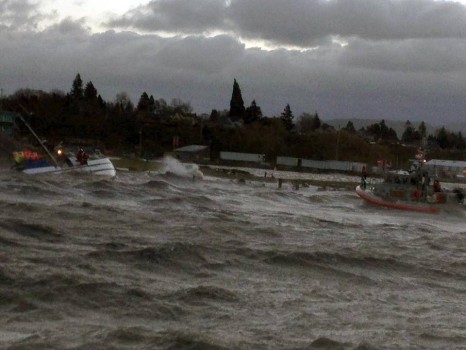 U.S. Coast Guard crews rescued three fishermen Thursday morning, March 10, from a boat that broke loose at a Bellingham harbor in an intense windstorm. A 52-foot commercial fishing boat named Bergen broke free from the spot it was moored, near Bellingham Cold Storage, 2825 Roeder Ave., sometime around 5 a.m. All of the lines must have come loose as the crew slept, said one the deckhands, Jacob Imholt, 35. Overnight a windstorm had roared into Whatcom County, with sustained winds above 40 mph and gusts measured around 70 mph. Read the rest here 14:45
U.S. Coast Guard crews rescued three fishermen Thursday morning, March 10, from a boat that broke loose at a Bellingham harbor in an intense windstorm. A 52-foot commercial fishing boat named Bergen broke free from the spot it was moored, near Bellingham Cold Storage, 2825 Roeder Ave., sometime around 5 a.m. All of the lines must have come loose as the crew slept, said one the deckhands, Jacob Imholt, 35. Overnight a windstorm had roared into Whatcom County, with sustained winds above 40 mph and gusts measured around 70 mph. Read the rest here 14:45
Maine Department of Marine Resources will re-open three closed scallop fishing areas
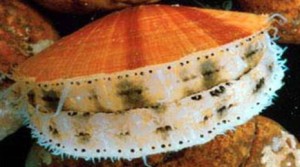 The Maine Department of Marine Resources will re-open three scallop fishing areas after having closed them to protect scallop populations in December. Inner Machias Rotational Area, Wahoa/Jonesport Reach, and Gouldsboro Bay and Dyers Bay will open next week when the Department of Marine Resources allows the emergency rulemaking to lapse. The Department of Marine Resources has instituted a new system for estimating scallop abundance. This new system showed that these three areas for scallop fishing had more available biomass than originally estimated in December. Read the rest here 12:49
The Maine Department of Marine Resources will re-open three scallop fishing areas after having closed them to protect scallop populations in December. Inner Machias Rotational Area, Wahoa/Jonesport Reach, and Gouldsboro Bay and Dyers Bay will open next week when the Department of Marine Resources allows the emergency rulemaking to lapse. The Department of Marine Resources has instituted a new system for estimating scallop abundance. This new system showed that these three areas for scallop fishing had more available biomass than originally estimated in December. Read the rest here 12:49
Dr. Molly Lutcavage – Environmental Bullies: How Conservation Ideologues Attack Scientists Who Don’t Agree With Them.
 In science, there’s always disagreement among experts and well-respected, conscientious non-governmental organizations (NGOs) working on tough questions. We are used to that. And we work things out as a team using objective scientific methods and evidence. A good scientist should be ready to make mistakes, to be wrong sometimes, to be called out, or to miss something obvious that someone else runs with and gets credit for. Or to get lucky with research, to be in the right place at the right time – we experience it all. And woman scientists that make it all the way to professional positions most likely have already been hit on or harassed or received unfair treatment, because there are fewer of us. Women scientists know plenty of these stories. We receive training for that too, even though it rarely helps. Read the rest here 11:55
In science, there’s always disagreement among experts and well-respected, conscientious non-governmental organizations (NGOs) working on tough questions. We are used to that. And we work things out as a team using objective scientific methods and evidence. A good scientist should be ready to make mistakes, to be wrong sometimes, to be called out, or to miss something obvious that someone else runs with and gets credit for. Or to get lucky with research, to be in the right place at the right time – we experience it all. And woman scientists that make it all the way to professional positions most likely have already been hit on or harassed or received unfair treatment, because there are fewer of us. Women scientists know plenty of these stories. We receive training for that too, even though it rarely helps. Read the rest here 11:55
Michigan state officials recommend against Great Lakes fish farms
 Three state agencies released a report recommending Michigan not pursue commercial fish farming operations in the Great Lakes because of several environmental and economic risks. The state departments of agriculture and rural development, environmental quality and natural resources released a report Wednesday on the controversial topic and proposals regarding net-pen aquaculture — a practice that involves raising fish in underwater nets, or solid structure cages serving as pens, also known as fish farming — in northern Lakes Huron and Michigan. The agencies concluded the report by urging the state not to pursue commercial net-pen aquaculture in the Great Lakes at this time. Read the rest here 11:31
Three state agencies released a report recommending Michigan not pursue commercial fish farming operations in the Great Lakes because of several environmental and economic risks. The state departments of agriculture and rural development, environmental quality and natural resources released a report Wednesday on the controversial topic and proposals regarding net-pen aquaculture — a practice that involves raising fish in underwater nets, or solid structure cages serving as pens, also known as fish farming — in northern Lakes Huron and Michigan. The agencies concluded the report by urging the state not to pursue commercial net-pen aquaculture in the Great Lakes at this time. Read the rest here 11:31
Elver fishermen unite as tribes agree to new rules
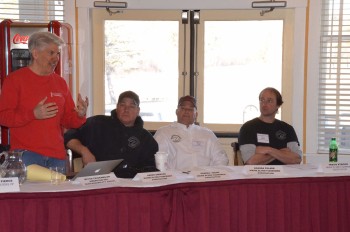 Last year, Maine fishermen harvested elvers worth more than $11.4 million from the state’s streams and rivers. That made the fishery for the tiny, translucent juvenile eels the fourth most valuable in the state, but it still wasn’t a good year. A cold, dry spring delayed the migration of elvers from the sea into the rivers where harvesters set their gear. As a result, Maine fishermen landed just 5,259 pounds of the tiny wrigglers, little more than half the 9,688-pound quota allocated the state by the Atlantic States Marine Fisheries Commission. When the Maine Elver Fishermen Association gathered for its annual meeting Saturday morning, harvesters received some good news from Department of Marine Resources Commissioner Patrick Keliher and former MEFA Executive Director Jeffrey Pierce. Read the article here 09:42
Last year, Maine fishermen harvested elvers worth more than $11.4 million from the state’s streams and rivers. That made the fishery for the tiny, translucent juvenile eels the fourth most valuable in the state, but it still wasn’t a good year. A cold, dry spring delayed the migration of elvers from the sea into the rivers where harvesters set their gear. As a result, Maine fishermen landed just 5,259 pounds of the tiny wrigglers, little more than half the 9,688-pound quota allocated the state by the Atlantic States Marine Fisheries Commission. When the Maine Elver Fishermen Association gathered for its annual meeting Saturday morning, harvesters received some good news from Department of Marine Resources Commissioner Patrick Keliher and former MEFA Executive Director Jeffrey Pierce. Read the article here 09:42
The Turkey Point Nuclear Power Plant is leaking radiation contamination into Biscayne Bay
Wednesday’s news of radiation contamination emanating from the Turkey Point Nuclear Power Plant leaking into Biscayne Bay alarmed Florida Keys citizens on every level. First, the Keys drinking water comes from the same neighborhood as the plant. Second, the affect to the fishery — so close to home waters — could also have an enormous impact. Florida Keys Commercial Fishing Association’s Bill Kelly said he called on Nick Wiley, the director of the Florida Fish and Wildlife Commission, to study the problem on Wednesday. “We need to test the lobster, shellfish and finfish in Biscayne Bay,” Kelly said. “We need to know if there’s any concern about public consumption of any of those products collected in that area.” Read the rest here 09:20
Walker names picks for North Pacific Fishery Management Council
 The North Pacific Fishery Management Council will have two new faces next fall, and the governor’s picks for the seat could push the council toward decisions favorable to small-boat fishermen and coastal communities. Governor Bill Walker announced his nominations for the two seats opening up. Theresa Peterson of Kodiak and Buck Laukitis of Homer were tapped to replace Duncan Fields and David Long, whose three-year terms expire in August. Fields, of Kodiak, has served the maximum three consecutive terms; Long, of Wasilla, simply isn’t being re-appointed. Read the rest here 08:08
The North Pacific Fishery Management Council will have two new faces next fall, and the governor’s picks for the seat could push the council toward decisions favorable to small-boat fishermen and coastal communities. Governor Bill Walker announced his nominations for the two seats opening up. Theresa Peterson of Kodiak and Buck Laukitis of Homer were tapped to replace Duncan Fields and David Long, whose three-year terms expire in August. Fields, of Kodiak, has served the maximum three consecutive terms; Long, of Wasilla, simply isn’t being re-appointed. Read the rest here 08:08
Hey, Let’s Use a Helicopter as a Tugboat!
 It’s possible that in 1958, the crew aboard the U.S. Coast Guard buoy tender Juniper were crouching, fearing the thin steel cable pulling them through the water at 15 mph might break, snap back, and, like a scythe, cut them in half. Yet it’s likely they were also gawking at what was providing their forward propulsion. On the other end of the cable, 300 feet ahead and 30 feet up, was a bright yellow Coast Guard helicopter, the bird in Project Tugbird. In November 1951, the Coast Guard began receiving the new Sikorsky HO4S helicopter. Equipped with a winch, a rescue basket, and a roomy passenger compartment, it was ideal for search and rescue. By early 1958, 30 were stationed at U.S. coastal cities. Along the way, someone thought it might be a good idea to use the helicopter for towing vessels—fishing, pleasure, and other types—out of harm’s way. Read the rest here 20:14
It’s possible that in 1958, the crew aboard the U.S. Coast Guard buoy tender Juniper were crouching, fearing the thin steel cable pulling them through the water at 15 mph might break, snap back, and, like a scythe, cut them in half. Yet it’s likely they were also gawking at what was providing their forward propulsion. On the other end of the cable, 300 feet ahead and 30 feet up, was a bright yellow Coast Guard helicopter, the bird in Project Tugbird. In November 1951, the Coast Guard began receiving the new Sikorsky HO4S helicopter. Equipped with a winch, a rescue basket, and a roomy passenger compartment, it was ideal for search and rescue. By early 1958, 30 were stationed at U.S. coastal cities. Along the way, someone thought it might be a good idea to use the helicopter for towing vessels—fishing, pleasure, and other types—out of harm’s way. Read the rest here 20:14
Dept chases away fishermen for using baby trawlers to catch ‘bubuk’
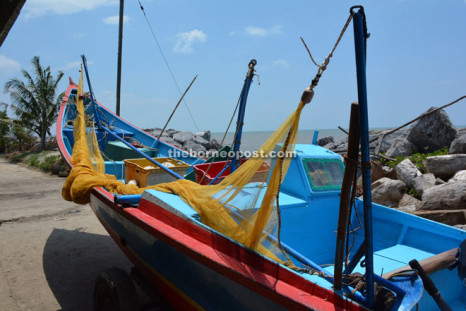 The state Marine Fisheries Department yesterday chased away several fishermen from Pantai Batu Satu for using baby trawlers to catch ‘bubuk’. Sarawak Marine Fisheries Department Region 3 head Buniamin Kiprawi said they were chased away because using baby trawlers to catch ‘bubuk’ is illegal. “They told us that we cannot catch ‘bubuk’ using the net which is tied to our engine boat. If we want, we have to use the traditional way which is just ‘Paka’ (net tied to two wooden rods and manned manually). “Many of us no longer want to use the traditional way of catching Bubuk because it is time and energy consuming, dangerous and the catch is also very little compared to the modern way. Read the rest here 13:51
The state Marine Fisheries Department yesterday chased away several fishermen from Pantai Batu Satu for using baby trawlers to catch ‘bubuk’. Sarawak Marine Fisheries Department Region 3 head Buniamin Kiprawi said they were chased away because using baby trawlers to catch ‘bubuk’ is illegal. “They told us that we cannot catch ‘bubuk’ using the net which is tied to our engine boat. If we want, we have to use the traditional way which is just ‘Paka’ (net tied to two wooden rods and manned manually). “Many of us no longer want to use the traditional way of catching Bubuk because it is time and energy consuming, dangerous and the catch is also very little compared to the modern way. Read the rest here 13:51
Athearn Marine Agency Boat of the Week: 48′ Fiberglass Duffy Lobster, 475HP, 6 Cylinder Detroit 60 Series
 Specifications, information and 19 photo’s click here To see all the boats in this series, Click here 12:37
Specifications, information and 19 photo’s click here To see all the boats in this series, Click here 12:37
Coast Guard rescue’s three fishermen Wednesday after their fishing vessel began taking on water six miles east of Oregon Inlet.
 The Coast Guard rescued three people Wednesday after the boat they were on began six miles east of Oregon Inlet. Coast Guard Sector North Carolina watchstanders received notification Tuesday at approximately 11:30 p.m. that a 43-foot commercial fishing vessel, F/V Allison, with three people aboard was taking on water. Coast Guard Station Oregon Inlet launched a 47-foot Motor Lifeboat crew to assist the vessel in distress. The coxswain of the 47-foot MLB made the decision to deploy two crew members and a dewatering pump to assist with dewatering efforts. The name of the vessel, F/V Allison, was confirmed by a Coast Guard representative. Link 12:24
The Coast Guard rescued three people Wednesday after the boat they were on began six miles east of Oregon Inlet. Coast Guard Sector North Carolina watchstanders received notification Tuesday at approximately 11:30 p.m. that a 43-foot commercial fishing vessel, F/V Allison, with three people aboard was taking on water. Coast Guard Station Oregon Inlet launched a 47-foot Motor Lifeboat crew to assist the vessel in distress. The coxswain of the 47-foot MLB made the decision to deploy two crew members and a dewatering pump to assist with dewatering efforts. The name of the vessel, F/V Allison, was confirmed by a Coast Guard representative. Link 12:24
Always Top Quality! Your Seafreeze Ltd. Preferred Price List for March 9th, 2016 Has Arrived!
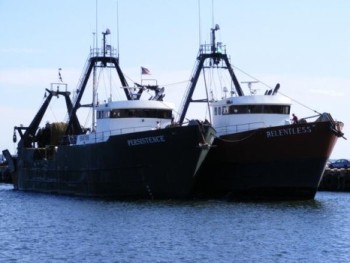 Contact our sales team today @ 401 295 2585 or 800 732 273 Click here for the complete price list from Seafreeze Ltd. We are Direct to the Source-We are Fishermen-We are Seafreeze Ltd! Visit our website! 12:00
Contact our sales team today @ 401 295 2585 or 800 732 273 Click here for the complete price list from Seafreeze Ltd. We are Direct to the Source-We are Fishermen-We are Seafreeze Ltd! Visit our website! 12:00
Billy Frank Jr. Day – Area tribes to honor Billy Frank Jr. with ceremonies, holiday today
Tribes are remembering Billy Frank Jr. today in ceremonies and with holidays to recognize his achievements as an environmental leader and Native American fishing rights activist. Billy Frank Jr. Day recognizes the contributions of Frank, who died May 5, 2014, at age 83. Frank was posthumously given the Presidential Medal of Freedom, the nation’s highest civilian honor. He was presented with many other awards during his career, among them the Martin Luther King Jr. Distinguished Service Award in 1990 and the Albert Schweitzer Prize for Humanitarianism in 1992. The Lower Elwha Klallam tribe and the Quinault tribe will close their tribal offices today for Billy Frank Jr. Day on the anniversary of his birthday. Read the story here 10:39
Warm ocean possible culprit in 2015 Pacific hake collapse – Big bounce-back is expected in 2016
 Warmer ocean water may be to blame for a troubling harvest decline last fall in one of the North Pacific’s most important commercial fisheries, federal scientists report. Pacific hake, also known as whiting, became scarce in Washington and Oregon waters last fall. This winter, they were “much farther offshore than the fish usually occur in summer and fall,” NOAA chief scientist Sandy Parker-Stetter wrote in a February blog. NOAA researchers were as surprised as anyone by the low catches. NOAA survey data from 2015 showed that West Coast hake are doing well, and remain present in large volumes, said Hicks, who serves on the Joint Technical Committee that analyzes hake data. Read the rest here 09:58
Warmer ocean water may be to blame for a troubling harvest decline last fall in one of the North Pacific’s most important commercial fisheries, federal scientists report. Pacific hake, also known as whiting, became scarce in Washington and Oregon waters last fall. This winter, they were “much farther offshore than the fish usually occur in summer and fall,” NOAA chief scientist Sandy Parker-Stetter wrote in a February blog. NOAA researchers were as surprised as anyone by the low catches. NOAA survey data from 2015 showed that West Coast hake are doing well, and remain present in large volumes, said Hicks, who serves on the Joint Technical Committee that analyzes hake data. Read the rest here 09:58
OOPS!! – Pipe breaks on Nova Scotia drilling rig, falls to ocean floor
 Two kilometres of pipe that connects an offshore drilling rig to a wellhead deep under the ocean broke off and sank in a storm off Nova Scotia’s coast Saturday, prompting concerns from an advocacy group over the risks of deepwater accidents caused by harsh ocean conditions. Shell Canada says there was no drilling fluid or hydrocarbons leak because the pipe had already been drained of fluids and a blowout protector remained in place over the well. The Scotian Shelf includes some of the province’s richest fishing grounds for haddock, and a huge spawning area for lobster. Read the rest here 09:20
Two kilometres of pipe that connects an offshore drilling rig to a wellhead deep under the ocean broke off and sank in a storm off Nova Scotia’s coast Saturday, prompting concerns from an advocacy group over the risks of deepwater accidents caused by harsh ocean conditions. Shell Canada says there was no drilling fluid or hydrocarbons leak because the pipe had already been drained of fluids and a blowout protector remained in place over the well. The Scotian Shelf includes some of the province’s richest fishing grounds for haddock, and a huge spawning area for lobster. Read the rest here 09:20
On Ernest Hemingway’s great love: His boat
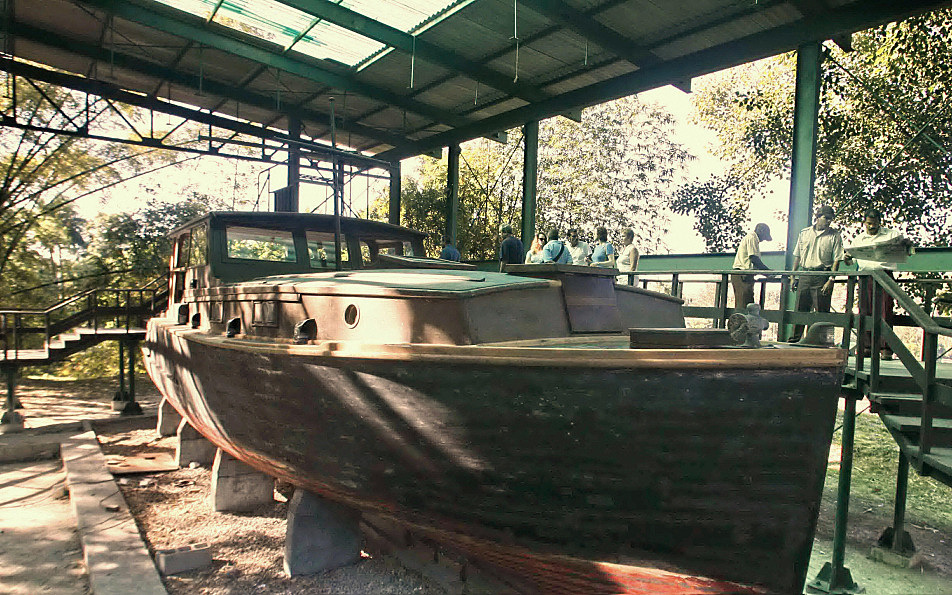 Paul Hendrickson’s new biography of Ernest Hemingway is a story of love and companionship, between Hemingway and Pilar — his boat. “She had been intimately his, and he hers, for 27 years, which were his final 27 years,” Hendrickson writes of Pilar, the fishing vessel Hemingway docked in Cuba. When Hendrickson first saw Pilar, which has outlived Hemingway by more than half a century, the boat was “dying in the sun” at Finca Vigia, Hemingway’s house 12 miles outside Havana. Now, with Cuba’s tourism industry kicking into high gear thanks to the thawing of relations between the island nation and the U.S., the boat has been restored. For the full interview with Paul Hendrickson on “Hemingway’s Boat,” use the audio player above. Click here 08:34
Paul Hendrickson’s new biography of Ernest Hemingway is a story of love and companionship, between Hemingway and Pilar — his boat. “She had been intimately his, and he hers, for 27 years, which were his final 27 years,” Hendrickson writes of Pilar, the fishing vessel Hemingway docked in Cuba. When Hendrickson first saw Pilar, which has outlived Hemingway by more than half a century, the boat was “dying in the sun” at Finca Vigia, Hemingway’s house 12 miles outside Havana. Now, with Cuba’s tourism industry kicking into high gear thanks to the thawing of relations between the island nation and the U.S., the boat has been restored. For the full interview with Paul Hendrickson on “Hemingway’s Boat,” use the audio player above. Click here 08:34

































